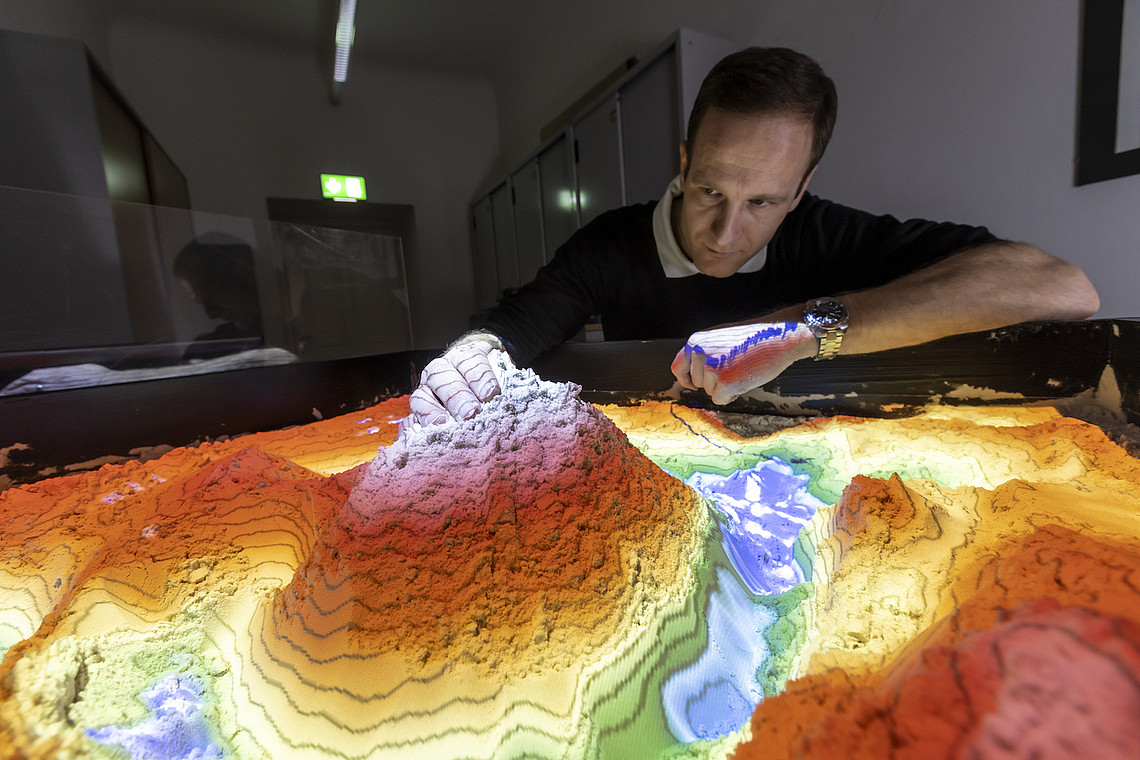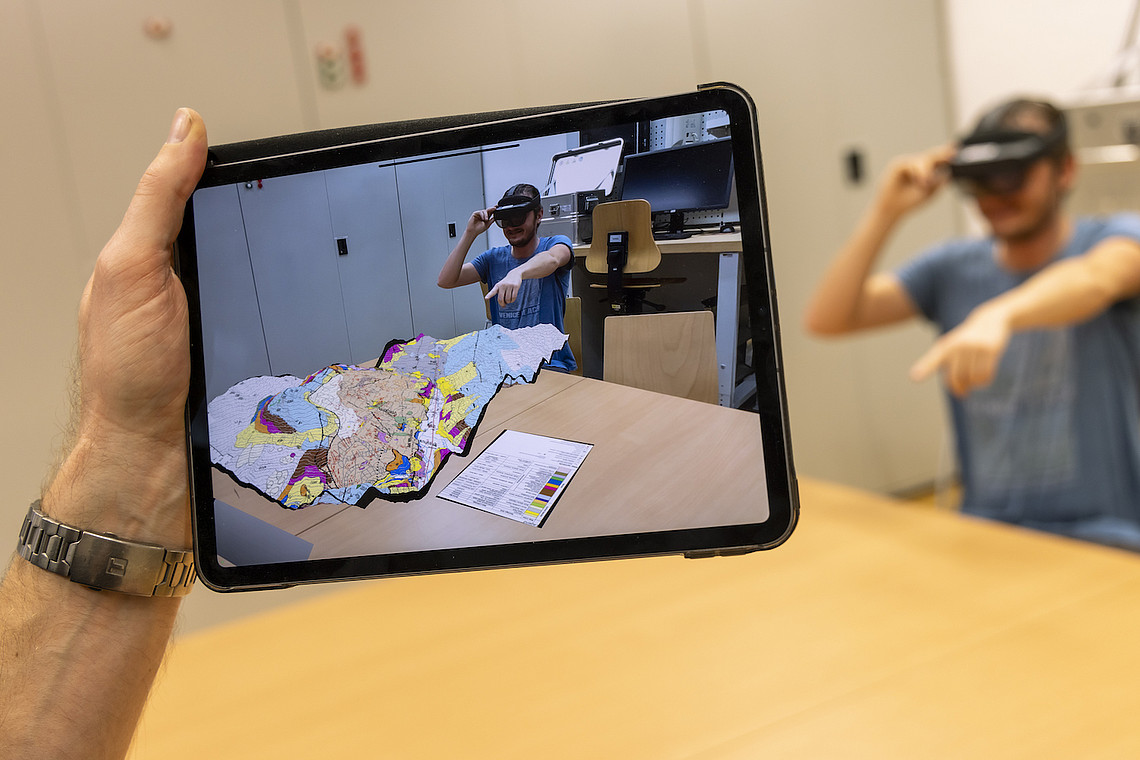Begin of page section: Contents:
Geosciences
4.5 billion years - hardly any other science can spread its research interest over such a long period of time. But in the geosciences, we calculate on a different scale. No wonder, because geology is concerned with the structure of the earth and the development of our planet and life on it. And a thousand or ten thousand years is a comparatively small amount of time. The geosciences provide important foundations for understanding our planet.
The Bachelor's degree programme in Geosciences teaches the basics of the subject. The contents are mineralogy and hydrogeochemistry, engineering geology, hydrogeology, petrology and geochemistry, geology as well as palaeontology and stratigraphy. The following skills are taught as part of the Bachelor's degree program:
- sound knowledge and understanding of methods of geology, petrology, palaeontology, mineralogy, geochemistry and geophysics
- knowledge of mathematics, chemistry, physics, zoology and botany
- Linking basic and applied earth science and geotechnical topics
- Computer-aided processing of relevant questions
- Use of important databases and specialist literature
- scientific ways of thinking and their application
- the ability to apply acquired knowledge universally and interdisciplinarily
- ability to work in a team and oral and written communication skills
Link to the curriculum
The English-language Master's programme in Geosciences opens the door to a variety of interesting jobs in different sectors. The spectrum ranges from research and analysis, management and quality control to education and training. Geoscientists work, for example, in engineering geology (road, tunnel or power plant construction), hydrogeology and hydrogeochemistry (groundwater supply, deep wells, mineral waters, water resource management, environmental protection), environmental geology (remediation of contaminated sites), in raw materials research (mineral raw materials, rare earths or raw materials for the energy transition, e.g. lithium), in the materials industry (refractory products, ceramics, concrete) or in scientific research.
Link to the curriculum (courtesy translation)
End of this page section. Go to overview of page sections
End of this page section. Go to overview of page sections

